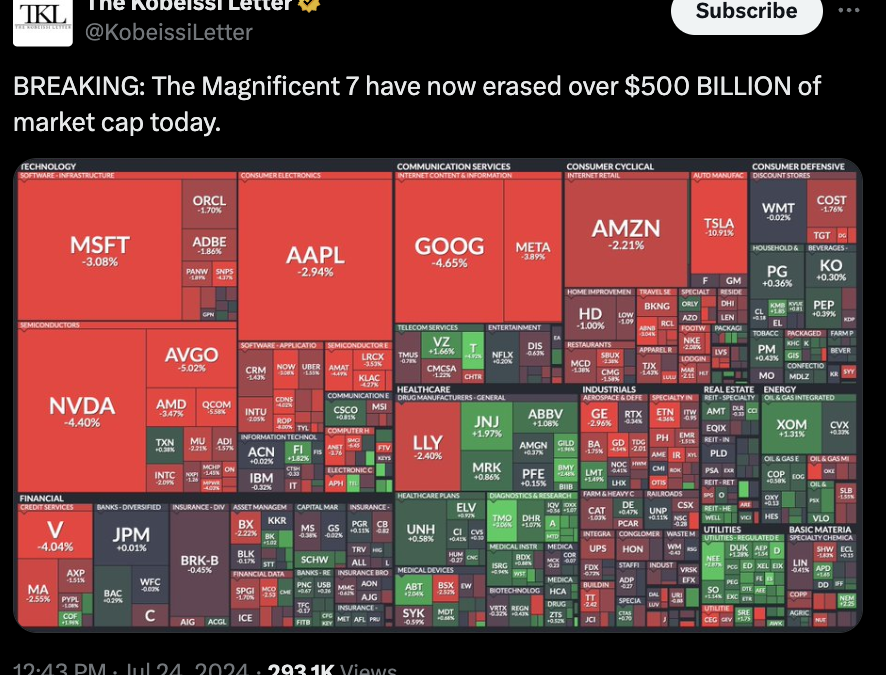It’s not that hard to make sense of Central Banks’ decisions.
Their instruction manual is relatively straightforward. Their motivations, usually transparent. And even when they surprise you, it’s still not hard to see what they were thinking.
That was until Tuesday.
In a move that left the financial world dumbstruck, the Bank of Japan announced it would move the yield curve control (YCC) target on 10-year Japanese Government Bonds (JGBs) from 25 basis points to 50 basis points.
So confusing was the move that you would be correct in calling it either a “monumental shift in policy” or a “nothingburger.”
It was monumental in that after pursuing inflation relentlessly for over 30 years and failing, current global conditions finally favor their policies. With inflation in Japan — running at about 3.5% per year, finally creeping into the economy, one is left wondering why shift now.
And it was a nothingburger because telling the world you would be willing to pay less for their bonds (and that’s all the statement amounted to) doesn’t really matter when you already own them all. There’s are very few JGBs left to sell the Bank of Japan.
So, superficially, it was a toothless statement.
But look underneath that superficial statement and you’ll see the Bank of Japan sowing seeds of chaos…
Greasing the Global Wheels of Commerce
For thirty years, there have been two factors greasing the wheels of global trade and investments.
The first was the near universal use of U.S. dollars to pay for globally traded goods and services. I mentioned last week how this is rapidly falling apart.
The second was to leverage investment returns by borrowing Japanese Yen cheaply. Otherwise known as the Yen-carry trade.
But the BOJ just pushed that trade in the other direction. And the deleveraging that results from higher rates, could soon start carrying those returns in the other direction.
Raising the carrying costs means borrowing limits get crossed, trades get unwound, and credits turn into debits. In effect, the BOJ warned it’s making a global margin call. And when things go Boom in finance, it’s almost always because something forced a lot of “someones” to sell the same stuff to meet margin calls.
And those possible booms are just another source of chaos.
The Infinite Opportunity Engine
Now, there are a lot of ways to look at chaos.
The most simplistic way is to view it as a state of complete disorder and confusion. Things get unpredictable. And that unpredictability often gets confused with randomness.
But chaos isn’t random. It’s just complex. And the nature of that complexity is what makes the process of chaos inherently unpredictable.
And since no one can predict even the general ramifications of the BOJs latest decision, it seems fair to add it to a rapidly growing pile of inherent unpredictability.
But the upshot of chaos is that it’s a necessary condition for creativity and progress.
Chaos disrupts established patterns and systems. This then leads to new ideas and approaches. In this view, chaos can provide a space for innovation and experimentation as it allows individuals and groups to question assumptions and try new things without being bound by existing norms or structures.
Which is just nature in action.
Periods of environmental stress or disturbance lead to increased genetic diversity as species adapt and evolve to new environments. Periods of political or social upheaval lead to the emergence of new ideas, movements, and forms of expression. And financial chaos opens doors to life-changing levels of wealth that were previously slammed shut, provided you steer your way through.
Anyhow, that’s the lens through which I view chaos.
Sure, there’s downside. In fact, I would argue establishing order through government has given humanity a way to slow down that evolution — to “conserve” the past. And that feels a lot like holding back chaos.
But government-imposed order isn’t an antidote to chaos. It bottles it up. And instead of evolving to deal with lots of tiny evolutions with small consequences, you end up with one large evolutionary leap of systems, institutions, alliances, order, etc.
I think that’s what we’re about to experience — one large, global evolutionary leap in systems.
The “old order” clearly no longer works. Assumptions that helped in the past now lead to failure. And chaos is how nature finds new solutions.
As nature sorts it all out, you can either hunker down and hope — or steer your way to the inevitable opportunities.
As for me, I’m going with the latter.
Think Free. Be Free.
P.S. Chaos… disorder… and the many opportunities these forces create. This is what we harness in my FREE Prosperity Pub Telegram channel. Hundreds of like-minded traders like you and I put our minds together and figure out how we’re going to make these markets work for us. Why not join us?



